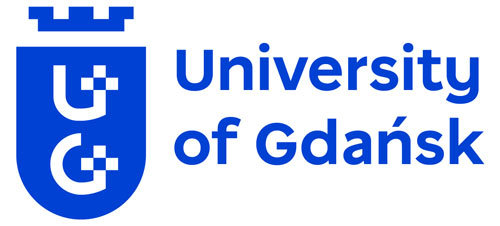
The project is financed in the frame of the International Research Agenda programme (IRAP) of the Foundation for Polish Science (FNP) financed by the European Funds for a Smart Economy 2021-2027 (FENG), Priority FENG.02 Innovation-friendly environment, Measure FENG.02.01 International Research Agendas.
The project total budget amounts to 30 000 000 PLN (where 100% of financing is European Funds).
The goal of the project:
The researchers want to develop a comprehensive anti-cancer therapy that will be taken to the clinical trial phase and open up new research areas in oncology. The research is led by prof. dr hab. Natalia Marek-Trzonkowska, an immunologist specialising in the therapeutic application of cells of the immune system.
‘The SWIFT project will enable International Centre for Cancer Vaccine Science to enter a new research path. We plan to start a clinical trial in the second half of its implementation. This will be a personalised therapy for non-small cell lung cancer (NSCLC). In this therapy, we use the patient’s T lymphocytes to fight the cancer. These are so-called live drugs, which are referred to as advanced therapy medicinal products (ATMP). The production of these types of drugs, however, requires a particularly stringent regime. We will work in a laboratory that meets good manufacturing practice (GMP) criteria. First, our manufacturing and quality control team will undergo months of training in such laboratories, which have been operating for many years at our strategic partners at the Technical University of Dresden (Germany) and Leiden University Medical Center (the Netherlands), and then at the laboratory in Gdańsk. Initially, we plan to rent space from GMP. However, we also have the construction of such infrastructure at the University of Gdańsk on the horizon.’ added prof. Natalia Marek-Trzonkowska.
The activities of the project:
On the basis of an elaborated algorithm for identification of cancer specific T cells, which selectively kill autologous tumour but not healthy lung tissue and the method for identification and quantification of cancer specific antigens (neoantigens) presented by MHC class I molecules of the tumour, the project plans to develop comprehensive anti-cancer therapy that will be translated into clinical trial and will open new research pathways in oncology.
The project is composed of the two parts which will be developed in parallel:
1. Clinical trial
2. Research and development activities focused on improvement of the approach tested in clinical trial.
The SWIFT project consortium aims to stream R&D activities into the following directions:
1. Identification of neoantigens presented by the tumour MHC class I and class II molecules and isolation of T cell clones that recognize them.
2. Determination of specific receptor-ligand pairs responsible for docking of cancer derived extracellular vesicles (EVs) to T cells.
3. Development of the strategies preventing T cell reprogramming by cancer derived EVs.
4. Modification of tumour microenvironment with reprogrammed autologous monocytes.
The Clinical Peptidomics Group, Immune Memory and Cell Reprogramming Group, Structural Proteomics Group and Cancer Immunology Group of ICCVS work together with the partners on implementation of the activities.

Projekt jest finansowany w ramach programu Międzynarodowe Agendy Badawcze (MAB) Fundacji na rzecz Nauki Polskiej (FNP), współfinansowanego ze środków Europejskich Funduszy na rzecz Nowoczesnej Gospodarki 2021–2027 (FENG), Priorytet FENG.02 – Środowisko sprzyjające innowacjom, Działanie FENG.02.01 – Międzynarodowe Agendy Badawcze.
Całkowity budżet projektu wynosi 30 000 000 PLN (100% finansowania pochodzi z Funduszy Europejskich).
Cel projektu:
Badacze chcą opracować kompleksową terapię przeciwnowotworową, która zostanie doprowadzona do fazy badań klinicznych i otworzy nowe obszary badawcze w onkologii. Badaniami kieruje prof. dr hab. Natalia Marek-Trzonkowska, immunolog specjalizująca się w terapeutycznym zastosowaniu komórek układu odpornościowego.
„Projekt SWIFT umożliwi Międzynarodowemu Centrum Badań nad Szczepionkami Przeciwnowotworowymi wejście na nową ścieżkę badawczą. Planujemy rozpocząć badanie kliniczne w drugiej połowie realizacji projektu. Będzie to terapia personalizowana dla niedrobnokomórkowego raka płuca (NSCLC). W tej terapii wykorzystujemy limfocyty T pacjenta do zwalczania nowotworu. Są to tzw. leki żywe, określane jako produkty lecznicze terapii zaawansowanej (ATMP). Produkcja takich leków wymaga jednak wyjątkowo rygorystycznych warunków. Będziemy pracować w laboratorium spełniającym kryteria dobrej praktyki wytwarzania (GMP). Najpierw nasz zespół odpowiedzialny za wytwarzanie i kontrolę jakości przejdzie wielomiesięczne szkolenia w takich laboratoriach, które od wielu lat działają u naszych strategicznych partnerów na Politechnice w Dreźnie (Niemcy) oraz w Uniwersyteckim Centrum Medycznym w Leiden (Holandia), a następnie w laboratorium w Gdańsku. Początkowo planujemy wynajęcie powierzchni spełniającej kryteria GMP. Jednak w dalszej perspektywie mamy również budowę takiej infrastruktury na Uniwersytecie Gdańskim” – dodała prof. Natalia Marek-Trzonkowska.
Działania projektowe:
Na podstawie opracowanego algorytmu identyfikacji swoistych dla nowotworu limfocytów T, które wybiórczo niszczą guz bez uszkadzania zdrowej tkanki płuc, oraz metody identyfikacji i ilościowego oznaczania neoantygenów prezentowanych przez cząsteczki MHC klasy I na komórkach guza, projekt zakłada opracowanie kompleksowej terapii przeciwnowotworowej, która zostanie wdrożona do badania klinicznego i otworzy nowe kierunki badań w onkologii.
Projekt składa się z dwóch części rozwijanych równolegle:
1. Badanie kliniczne
2. Działania badawczo-rozwojowe ukierunkowane na udoskonalenie podejścia testowanego w badaniu klinicznym.
Konsorcjum projektu SWIFT zamierza ukierunkować działania B+R w następujące obszary:
1. Identyfikacja neoantygenów prezentowanych przez cząsteczki MHC klasy I i II guza oraz izolacja klonów limfocytów T je rozpoznających.
2. Określenie specyficznych par receptor–ligand odpowiedzialnych za dokowanie zewnątrzkomórkowych pęcherzyków (EV) pochodzenia nowotworowego do limfocytów T.
3. Opracowanie strategii zapobiegania przeprogramowaniu limfocytów T przez EV pochodzenia nowotworowego.
4. Modyfikacja mikrośrodowiska guza z wykorzystaniem przeprogramowanych autologicznych monocytów.
Grupa Peptydomiki Klinicznej, Grupa Pamięci Immunologicznej i Przeprogramowania Komórek, Grupa Proteomiki Strukturalnej oraz Grupa Immunologii Nowotworów współpracują z partnerami nad realizacją tych działań.


